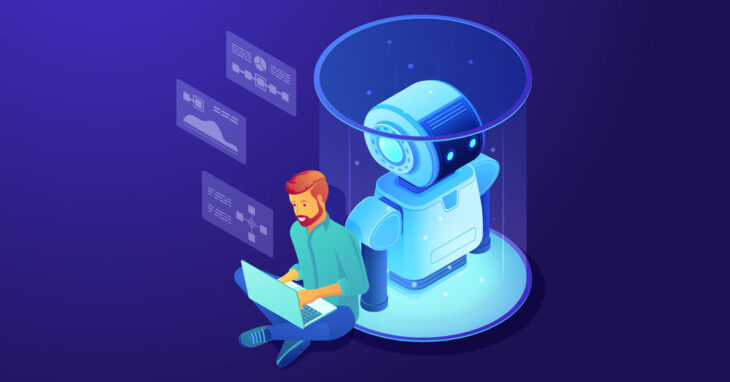Artificial Intelligence (AI) is already a powerful force driving innovation and change across industries. As technology continues to evolve, AI is poised to revolutionize even more aspects of our personal and professional lives. From automation and data analysis to healthcare and creative industries, the future of AI holds immense potential to reshape the world in ways we can only begin to imagine.
Key Trends Shaping the Future of AI
- Increased Automation
AI is expected to drive further automation in various sectors, from manufacturing to customer service. Tasks that once required human intervention, such as data entry, decision-making, and even complex problem-solving, will increasingly be handled by AI systems. This shift will not only improve efficiency but also allow businesses to focus on higher-value tasks. - AI in Healthcare
AI’s role in healthcare will continue to expand, with advanced machine learning algorithms helping to diagnose diseases, personalize treatment plans, and even predict patient outcomes. The integration of AI with medical devices and imaging technologies will streamline healthcare processes, leading to faster, more accurate diagnoses and treatments. - Ethical and Responsible AI
As AI becomes more integrated into our lives, ethical concerns surrounding its use will grow. Ensuring AI systems are transparent, fair, and unbiased will be critical. The future of AI will likely involve greater regulation and the development of ethical frameworks to ensure these technologies are used responsibly and ethically. - AI in Creativity
AI is already making its mark in creative fields, including art, music, and writing. Future developments will likely see even more sophisticated AI systems capable of creating original works, collaborating with humans in the creative process, and enhancing content creation across industries. - Enhanced Personalization
As AI continues to analyze vast amounts of data, the ability to provide hyper-personalized experiences will become more refined. From personalized shopping recommendations to custom-tailored content, AI will enable businesses to deliver exactly what customers want, when they want it, with unprecedented accuracy. - AI in Autonomous Systems
Self-driving cars, drones, and robots are all powered by AI, and the future promises even more advanced autonomous systems. AI will continue to enhance these technologies, improving their reliability and safety. The future could bring us fully autonomous vehicles on the road, transforming transportation and logistics. - AI and Human Collaboration
Rather than replacing human workers, AI will increasingly collaborate with them to solve complex problems and drive innovation. In fields such as research, engineering, and design, AI will be a valuable tool to augment human creativity and decision-making, creating new opportunities for collaboration.
Challenges and Considerations
While the future of AI is promising, there are challenges that need to be addressed:
- Job Displacement: The automation of tasks previously performed by humans may lead to job losses in certain sectors, requiring workforce reskilling and adaptation.
- Privacy Concerns: As AI systems process vast amounts of personal data, protecting privacy and securing information will become a critical issue.
- Bias and Fairness: Ensuring that AI systems are fair, unbiased, and inclusive will require continuous work in developing and refining algorithms.
The future of AI is bright, with incredible potential to revolutionize industries and improve lives. From automation to creativity, AI will continue to push boundaries, creating new opportunities and challenges along the way. As we move forward, it will be essential to develop AI technologies responsibly, ensuring they are used ethically and for the benefit of society. The next chapter in the AI revolution promises to be one of the most exciting and transformative yet.
